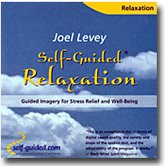Diet and Stress
There are strong links between diet and stress. Some people live to eat. Others eat to live. We invest so much time, energy, money, and attention into feeding ourselves, yet health statistics indicate that nearly 90 percent of all disease is linked to unwise choices in feeding ourselves. Food choices are deeply linked to many of the mindless habits in our lives.
From one point of view, eating is essentially a form of self-medication. We nourish ourselves but we also alter our biochemistry and thus our state of mind or consciousness each time we eat. If you doubt this, go without eating too long, and see what happens to your mental-emotional-physical state.
We all know how eating some food leaves us feeling heavy, dull, lethargic, or sleepy, while eating other foods leaves us feeling more calm, balanced, or energized. At least three times a day, the food choices you make can either increase or reduce your level of stress.
Being mindful of your food choices and how you feel after you eat different foods is an essential key to stress reduction. Until recently, there has been little interest in our culture for learning about healthy food habits. Most doctors currently practicing have had less than an hour of formal instruction on nutrition, though they spent nearly a decade in school.
But with growing concern over increasing health care costs, and the startling findings that so many of our diseases are linked to our eating habits and to the unwise practices used in growing food, many people are taking a greater interest in healthier nutrition and ways of growing food that are less harmful to our bodies and to the environment.
Simply put, your body is a walking talking biochemical factory. What you eat directly and immediately affects your biochemical balance, the chemistry of your blood, the ability of the countless sensitive biochemical processes in your body to function.
The body is made to maintain health, to be effective at cleansing itself of elements that may cause disease. But if the immunological defenses of the body are overburdened trying to get rid of large amounts of imbalancing substances in the body, then our ability to maintain our health, restore our vitality, manage stress, and ward off disease is severely compromised. This is why it is so important to understand the relationship between diet and stress.
We live in times that tax our bodies. Some say that the nutrition in our food is less than 10 percent what it would have been a hundred years ago because the nutrients in the soil in which our food grows has been severely depleted by modern farming methods, erosion, and abuse of the soil with chemicals. Our food is so saturated with pesticides that the breast milk of every mother tested in the U.S. had higher levels of contaminants that would be allowable to sell in store bought milk.
Walking into a grocery store, we often have to balance two competing voices in our minds: one that says how tasty and attractive those foods are, the other that wonders how laden with pesticide and fertilizer residue they are and what our risks are in eating them or feeding them to children who are in their formative years.
For better or for worse, the food you eat has very powerful biochemical consequences in your body. The good news is, with the right understanding of the link between diet and stress, you can learn to control these consequences by the amount and types of food you choose.
Understanding that nutrition is a vast and complex field, we’d like to simply offer some information and a few guidelines here to help you get more stress relief through food choices and make wise decisions regarding your food choices that will help you reduce stress and create more balance in your life.
If you are interested in learning more about nutrition, seek out a professional or read books to help you sort out what a balanced nutritional strategy is for you. There are many recent pioneering books advocating food choices based on new research considering factors such as metabolic balancing, individual blood and body types, genetic ancestry, and mind-body interrelationships.
[Adapted from the book "Living in Balance" by Joel Levey
and Michelle Levey]
